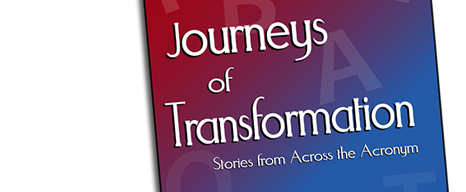LGBTQQIAA, aka ‘the acronym’ – quite a mouthful. A 60-something gay friend of mine commented to me awhile ago, “I can’t keep track anymore, I don’t know what all the letters mean! No disrespect intended, but I just keep saying ‘GLBT’ because it’s what I know.”
Many in GALA choruses see the times shifting around them. My own chorus now has a few cisgender women singing first tenor, post-transition transmen in three different sections, 6-8 straight cisgender men at any given time. At various times, we have had transwomen members, singing in various sections.
Incorporating cisgender women into a men’s chorus, or a straight woman into a lesbian-identified chorus, involves some buy-in from membership. Trans inclusivity may seem like the next big conversation, but it is only part of a larger topic: What does it mean to be a gay, lesbian, or gay/lesbian chorus in an LGBTQQIAA world? At its inception, GALA represented the gay and lesbian community; there were no letters after LG. Who does GALA Choruses represent now, and who does each member chorus represent? Who do we sing for in 2014? Does it depend on where a chorus is located? How much does the age of a chorus organization matter? The average age of members of a chorus?
I see no reason to reinvent the wheel, so am copy-and-pasting a few paragraphs from my new book:
“An organization formed to “uplift the gay community” or “provide supportive social opportunities for the lesbian community” may still have that mission while also being trans-inclusive. If current members receive some education around trans issues, this can help create an environment in which trans members will feel they can participate openly-trans.
If a trans person joins a venerable organization, they will feel some pride of ownership in participating in a group that has survived the AIDS epidemic, survived anti-gay rhetoric and ballot measures, survived to 2014 to celebrate a move toward marriage equality, trans inclusion in ENDA and insurance plans, etc. A trans person joining a gay/lesbian group isn’t trying to turn it into a trans organization; they are trying to participate in an activity, and hope to do so as their authentic self.”
(from Journeys of Transformation: Stories from Across the Acronym)
The same holds true for anyone who joins a GALA chorus; they are not trying to change the mission statement, or dilute the message of the chorus. They are joining a chorus they admire, with a desire to lift their voices in a community of song. Do all your members have to be cisgender lesbians to resonate with singing, “We who believe in freedom will not rest until it comes” in company with several dozen other women? Won’t chorus members tear up when singing “Never will there be a moment, ever, when we all will be together, never,” regardless of their sexual orientation or gender identity?
There is no need for a chorus to change its name from “GMC” to “LGBTQQIAAC” in order to be inclusive. Particularly for venerable organizations, the name probably has some iconic status in its home territory. PFLAG has recently faced the dilemma of its name: How to be fully inclusive when the name specifically says “L” and G?” And how can PFLAG change its name? There are few across the acronym who don’t know of PFLAG. However, there are also few across the acronym who could tell you with complete accuracy what the initials in PFLAG stand for: Parents, Families and Friends of Lesbians and Gays. With this in mind, PFLAG National has recently changed the name of the organization to “PFLAG” – the acronym now IS the organization’s name. This works because, while few can accurately state what the PFLAG letters spell out, they can all accurately state the organization’s intent: “PFLAG is where I sent my parents.”
Similarly, my own chorus is routinely called “Portland Gay Men’s Choir,” rather than Chorus, by many. Does that matter? Not really. Because they also know they feel uplifted and energized by our concerts, whether they know precisely what “PGMC” means as an acronym , or not. And, they feel uplifted and energized by our concerts regardless of the specific identity of any of the singers.
- The Beijing Queer Chorus Visits Portland! - August 7, 2018
- Both Sides Now - May 15, 2016
- Authenticity in the New Age - October 21, 2014




